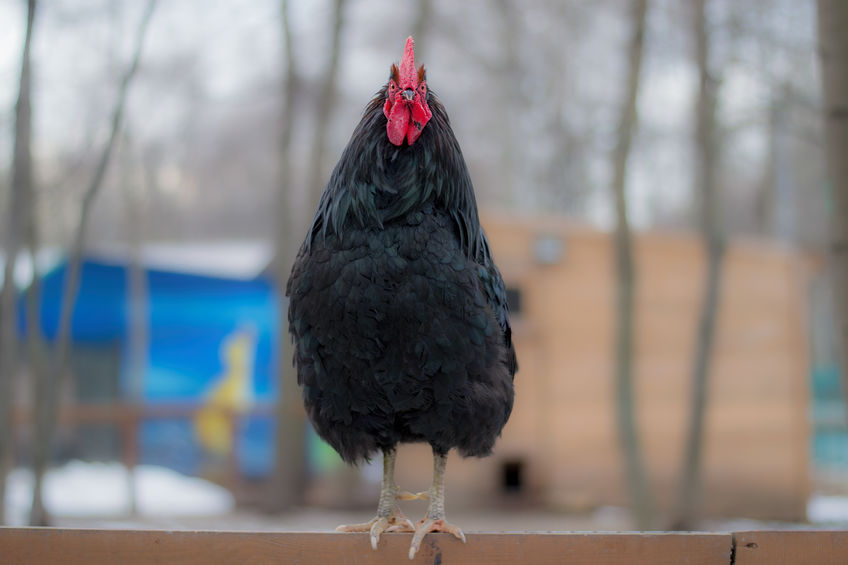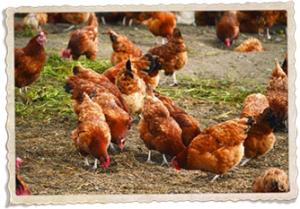 Wintertime can bring a whole host of challenges, especially if you’re a chicken owner. While some chickens are built to withstand the cold, all chickens will still need some protection. As such, you’ll need to take extra precautions to keep your chickens happy and healthy throughout the tough winter season.
Wintertime can bring a whole host of challenges, especially if you’re a chicken owner. While some chickens are built to withstand the cold, all chickens will still need some protection. As such, you’ll need to take extra precautions to keep your chickens happy and healthy throughout the tough winter season.
Below is our chicken winter care guide to help you keep your flock warm and comfy this winter season:
Keeping Your Chickens Warm
The biggest challenge you will face in the winter will be keeping your chickens warm. Even with their heavy plumage, chickens can still get chilly. So, take these steps to keep your flock warm in the cold winter months:
Give your chickens extra room to roost
At night, your chickens can keep each other warm by roosting together. However, if you notice any of your chickens resting on the cold ground at night, make sure they have enough space to roost with the rest of the flock. Bear in mind that any roosts should be at least two feet off the ground as well.
Try the deep litter method
This technique uses pine shavings (or other organic materials such as dry leaves or dry straw) to insulate your chicken coop. It also makes litter management a breeze. Here’s how you can get started:
- Layer your pine shavings on the floor of the coop
- Turn the bedding about once a week with a rake or pitchfork. You can also add scratch grains or food scraps to the mix to encourage your chickens to stir the litter for you.
- Once the litter starts to break down, add another layer of pine shavings so that the bedding is about one foot thick.
The deep litter method will keep your coop warm and cozy. It will also form a layer of compost that allows healthy microbes to consume unhealthy bacteria in chicken waste. It’s a win-win for you and your chickens.
Add a “cold frame” to your coop
A cold frame is a small greenhouse or sunroom structure that you can attach to the outside of your chicken coop. It can be constructed with a wood frame and Plexiglas panels, or with clear plastic sheeting stretched over the frame. With a cold frame, your chickens will be able to huddle up and stay warm when they’re outside during the day.
Preventing frostbite
You don’t have to keep your chickens inside the coop all winter. Chickens are hardy creatures, and they can withstand a good amount of what mother nature can throw at them. Nevertheless, frostbite can happen to even the hardiest chicken from walking around in the snow and ice all day. To prevent this, clear you run of snow and keep the coop warm at all times.
Keep the water melted
If their water is frozen, then your chickens won’t be able to stay properly hydrated. While they don’t need as much water as they do in the summertime, they’ll still need an adequate supply for them to stay healthy and lay eggs. Get heated waterers to prevent the water from freezing over (just make sure the water isn’t heated too much, as no one likes drinking lukewarm water).
Keep an Eye Out for Predators
Predators such as foxes, cats, and coyotes are more desperate for food in the wintertime. To protect your flock, keep them inside the coop and run area only instead of free ranging. You should also make sure these areas are well protected by using hardware mesh around and under the perimeter of your run.
What NOT to Do in the Winter
We’ve discussed everything you should do…but what about what you shouldn’t do? Here are a few things to avoid this winter:
Heat lamps
It should go without saying, but as a chicken owner, you want to keep your chickens warm and comfortable in the winter. Many people think that the best way to do this is to provide a heat lamp for their chickens. While their intentions are good, this could backfire. Heat lamps are simply not safe to keep in coops as they can fall and start a fire. Instead, try the deep litter method (mentioned above) or buy chicken coop heaters.
Closing your chicken coop
Another way people try to keep their chickens warm is to close the coop. Again, while the intentions are good, this often backfires. A chicken coop can get damp, and by closing it you’re cutting off any chance of ventilation. This leads to mold and bacteria forming inside the coop, which in turn cause disease and frostbite. In order to have good ventilation while also keeping the coop warm, block everything off except the ventilation above the roost at roof level.
Not letting your chickens outside
Chickens are hardy creatures. In that respect, they handle the cold much better than we as humans can. While you don’t want to let them free-range, you can let them out into the run area in order to get some fresh air and sunshine.
Infrequently gathering eggs
Water isn’t the only thing that can freeze in cold temperatures. Chicken eggs, if left out for too long, can also freeze. Thawing them won’t help matters, so be sure to go outside and collect any laid eggs every few hours.
For more tips on how to keep your chickens happy and healthy this season, contact Chickens for Backyards for more information.

